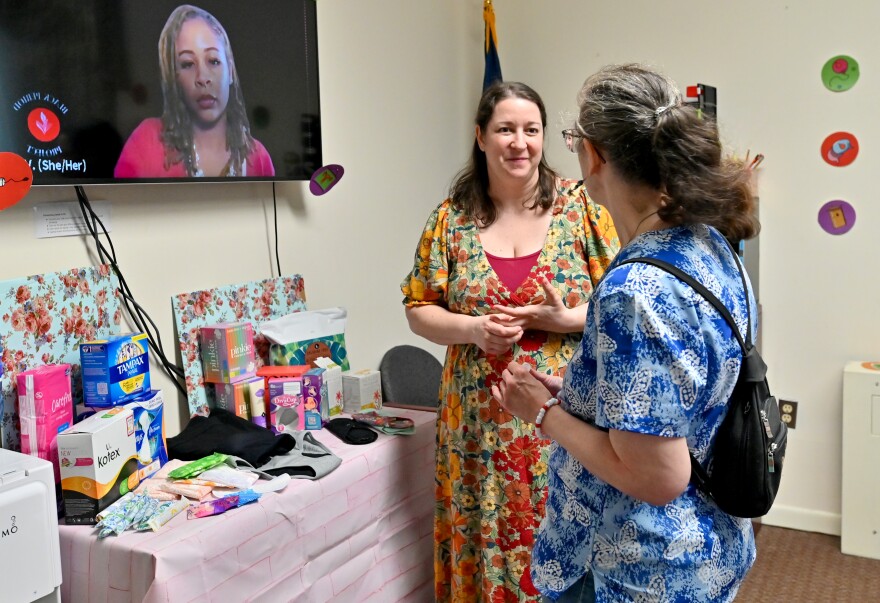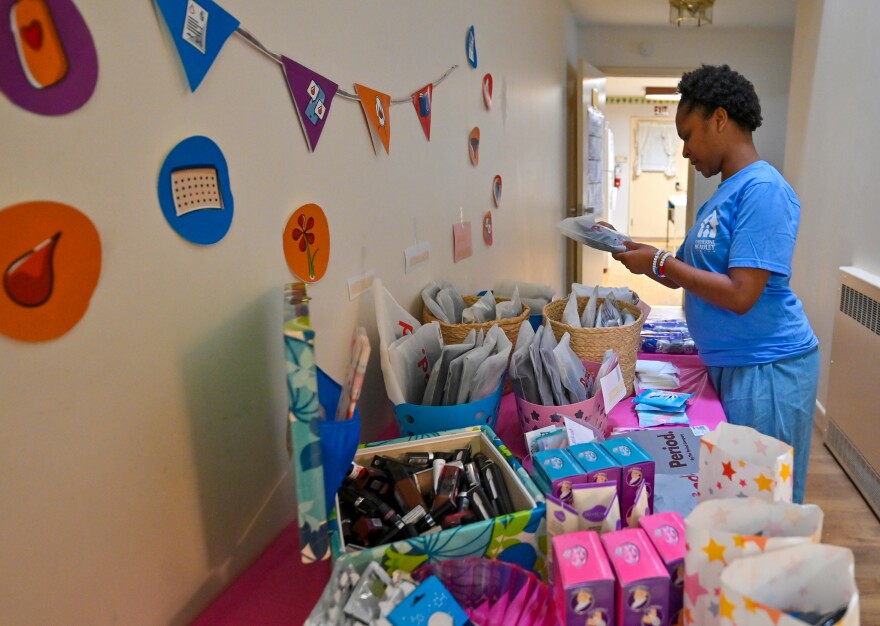Aunt Flo, the dot and the red wave are just some of the many nicknames for periods.
Menstruation is not often discussed — there’s a stigma, it’s taboo. And it brings harm to the 500 million people worldwide who do not have access to period products.
The Catherine McAuley Center in Scranton aimed to break barriers on Tuesday during the global Menstrual Hygiene Day. They provided period products and education to those in need.
"That ties great into our mission ... being able to buy products, being able to maintain your cycle with your job, with your kids, just kind of awareness all around especially with our participants that are experiencing many difficult challenges throughout their life," said Nicole Guzenski, the center’s director of programs.
Inside the center in South Scranton, pads, tampons and Diva Cups lined tables. Education materials were available and menstruation bracelets with white and red beads were handed out as part of McCauley's Period Project. Menstrual Hygiene Day raises awareness and prompts action.

Guzenski said it’s often missed that people who menstruate have a monthly need.
“They have this need to have products on stock, have the availability to be flexible with what they're wearing, how they're feeling, if they're able to work or not. It can impact somebody's life greatly," she said.
Period products are not covered under the Supplemental Nutrition Assistance Program (SNAP).
“So you're having to find other means if you're working, or you're having to budget that out and think very consciously about where am I going to get my monthly products," said Guzenski
Shannon Hollock-Bobbett is the program manager of the Luzerne County Center in Plymouth. She said many of the people they serve experience food insecurity.
“You still menstrate ... every month, you still need those products," she said. "Nobody thinks about it until you bring it to light. Nobody thinks ... you might not have money to go buy the tampon. So what do you do?”
Guzenski said they often make intentional choices.
"And that could mean extra snacks for the kids or tampons because you need them," she said.
McAuley’s stock of period products are from donations, which are sometimes from menstruation companies. The center also has a pink Period Pantry outside it's offices on Pittston Avenue. Inside are period products that are free to anyone who may be in need.

The center plans to grow their Period Project. Executive director Krista Murray even took the issue to Harrisburg.
Governor Josh Shaprio’s budget proposal calls for $3 million in state funds to make period products available at no cost to students. Murray was among stakeholders who met with Pennsylvania's First Lady Lori Shapiro to discuss period poverty and menstrual equity and programs — like McAuley’s — that can be replicated.
"So the next follow up to that meeting would be how to implement some of the ideas that we had," Murray said. "Providing funding is great ... but what does that look like in practice? How do you get the products in the hands of the people that need them? And what is the most efficient ways to do that, too?"
Murray said it’s thrilling to represent the people they serve at the state level.
“And advocate for their needs and really share stories of the women that we serve every single day," she said.



